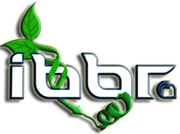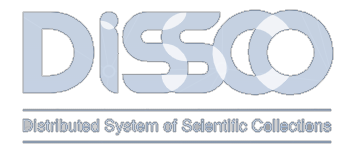Score: 5.73
#3779 - International workshop - New techniques for plant breeding
Organized by the Academy of Agricultural and Forestry Sciences (ASAS) of Romania, in collaboration with CREA (Center for Vegetable and Ornamental Plants) and CNR (Institute of Biosciences and BioResources) from Italy. November 26, 2024, 10:00 AM (EET), Bucharest
Kind: news - Date: Nov 20, 2024
Score: 3.35
#2584 - Vincenzo D’Amelia(personal page)
Main research topics Since I started my scientific career, I have been fascinated by plant metabolites and, in particular, the genetics behind their control. I am keenly interested in unlocking the molecular regulation of these extraordinary natural compounds to better understand their role in plant cells and also in exploiting them for human needs.
Kind: personal - Date: Apr 08, 2020
Score: 3.31
#2154 - Overcoming sexual sterility in conservation of endangered species: the prominent role of biotechnology in the multiplication of Zelkova sicula (Ulmaceae), a relict tree at the brink of extinction
Carra A, Catalano C, Badalamenti O, Carimi F, Pasta S, Motisi A, Abbate L, La Bella F, Fazan L, Kozlowski G, Garfì G
Kind: pub - Date: Jan 18, 2019
Score: 3.24
#321 - EV-C@p - EV-C@p: Plant-derived Extracellular Vesicles as novel biotechnological platform for biopharma applications (Progetti Grande Rilevanza 2023)
Going beyond the state-of-the-art and relying on highly interconnected approaches mastered by the applicants, in EV-C@p will setup a novel vegetable-based system for the production of nanovesicles and exploit them as a biotechnological platform for biopharma applications. This will be achieved through the isolation of EVs from organically grown tomato and panax ginseng and by the establishment of their in vitro cell cultures to biomanifacture EVs. By applying emerging biotechnology we will develop engineered EV-based solutions to create next generation nano-delivery systems. The native and the engineered plant EVs will be exploited for their health promoting anticancer and anti-inflammatory activities in vitro. To achieve the above objectives the EV-C@p consortium was created with the participation of two research groups (KHU and CNR) and two SMEs partners, ImmunoVeg from Italy and NIOBiopharmaceuticals from Korea. The project will strengthen the already existing collaborations between the two PIs and create new ones with the SMEs to provide a solid cornerstone for further research efforts of the participants and to make a prompt translation of the research results into new technology and products after the ending of the project. An ambitious staff exchange programme for the transfer of scientific and transferable skills, dissemination and outreach activities were implemented into the scientific plan.
Kind: project - Date: Jan 01, 2023
Score: 2.67
#925 - Francesca Dini(personal page)
Present Positions: Contract Researcher at CNR IBBR, Perugia, Italy on biogas production from low-input crops Scientific experience: 2014 Contract Researcher at CNR IBBR, Perugia, Italy on local grape variety identification 2013 Winner of the prize F....
Kind: personal - Date: Feb 10, 2015
Score: 1.99
#2443 - Olive triterpenoids: identification and functional characterization of key biosynthetic genes
Alagna F, Thimmappa R, Reed J, Cultrera NGM, Calderini O, Baldoni L, Osbourn A
Kind: pub - Date: Mar 24, 2020
Score: 1.89
#771 - Environmental impact assessment and monitoring of genetically modified trees
Gallardo F, Ionita L, Ruohonen-Lehto M, Harfouche A, Biricolti S, Boerjan W, Glandorf B, Jouanin L, Fladung M, Vettori C
Kind: pub - Date: Jan 19, 2015
Score: 1.80
#1421 - Factors affecting somatic embryogenesis in eight Italian grapevine cultivars and the genetic stability of embryo-derived regenerants as assessed by molecular markers
Carra A, Sajeva M, Abbate L, Siragusa M, Pathirana R, Carimi F
Kind: pub - Date: Apr 08, 2016
Score: 1.76
#338 - Maria Federica Consiglio(personal page)
Research Interests We focus our research in understanding plant sexual reproduction, mainly working with the model plant Arabidopsis thaliana and to some extent with crop species. Specifically, we are interested in: - Epigenetic control of meiotic recombination in Arabidopsis - Histone post-translational modifications and ovule development in Arabidopsis - Identification of genes underlying sexual polyploidization in potato - Epigenomics of tomato reproduction
Kind: personal - Date: Oct 03, 2014
Score: 1.49
#3699 - Biofortification of tomato using genome editing
Iovieno P, Capuana M, Scarano A, Santino A, Basso MF, Martinelli F
Kind: pub - Date: Oct 04, 2023
Score: 1.24
#318 - Simone Grisan(personal page)
Born in Udine, on 4th september 1979, since 2006 engaged in research activity in the areas of plant pathology, biodiversity of endophytic community, plant/pathogen interaction, adopting microbiological and molecular methodology including innovative technology...
Kind: personal - Date: Sep 16, 2014
Score: 1.22
#28 - IBBR - DIvision of Perugia
Initially, the research activity carried out by IBBR/PG concerned forage and legume crops breeding, including cytological and cytogenetic topics, while in the last decade it has been directed mainly on the utilization of plant biotechnology for both basic and applied research.
Kind: static - Date: Nov 15, 2013
Score: 1.20
#117 - Cristina Vettori(personal page)
Curriculum Vitae Work Address: Institute of Biosciences and BioResources, Division of Florence, National Research Council, - Via Madonna del Piano, 10 - 50019 Sesto Fiorentino (Firenze), Italy, Tel: ++39...
Kind: personal - Date: Feb 04, 2014
Score: 1.01
#2406 - Francesca Taranto(personal page)
Francesca Taranto research activity is focused on marker assisted breeding and genetics of wheat, legumes and other cultivated trees (olive, almond and grapevine). Genetics, molecular biology, genomics and bioinformatics are used to investigate population genetics, biodiversity and gene flow, and identify key genes involved in the expression of important agronomic traits. Her main research interest are polyphenol oxidase enzyme and their role during the evolutionary history of domesticated tetraploid wheat. Skills and Expertise: plant breeding, population genetics, genetic resources conservation, crop domestication, genomics, gene flow, adaptation, QTL mapping, genome-wide association mapping, linkage disequilibrium, phylogenetic analysis. Nucleic acid extraction and PCR; capillary electrophoresis applied to DNA, statistics (R), SNP data analysis, plant functional annotation and classification, gene families and genomic homology, PPO activity assay.
Kind: personal - Date: Jan 29, 2020
Score: .98
#301 - Monica De Palma(personal page)
My research activity within the group “Genetics and biotechnologies for the improvement of agro-industrial productions” at CNR-IBBR in Portici is currently focused on the following topics: - Identification of molecular mechanisms and regulatory networks underlying plant-environmental interactions. Using genomic approaches, we investigate the molecular response of tomato to rhizosphere beneficial microorganisms and/or abiotic stresses; - Isolation, cloning and functional analysis of key genes and transcription factors involved in the biosynthesis of relevant secondary metabolites in crop species (Cynara cardunculus var scolymus and Solanum melongena); - Study of mechanisms implicated in the merceological and nutritional value of foods.
Kind: personal - Date: Sep 04, 2014
Score: .96
#394 - Francesca Bagnoli(personal page)
Positions Present: researcher at CNR IBBR Firenze, Italy since October 2014 Previous: researcher at CNR IPSP Firenze, Italy November 2011- September 2014 2002 - Ph.D. in Agricultural and Forest Genetics at the University of Florence, discussing a thesis:...
Kind: personal - Date: Oct 17, 2014
Score: .94
#340 - Silvana Grandillo(personal page)
Main Scientific Interests Development of mapped genetic resources in tomato, with special emphasis given to populations of marker-defined introgression lines (ILs) originating from interspecific crosses, for a more efficient exploitation of the natural biodiversity stored in unadapted germplasm. Current applications of these genetic resources include QTL analyses for fruit quality traits and integrative systems biology and genomic approaches to gain further insights into the networks regulating key fruit metabolic pathways underlying tomato flavour and nutritional quality. Identification and functional characterization of key genes involved in nutritional and merceological quality in pepper. Metabolic engineering of secondary metabolite pathways for the production of health-related compounds.
Kind: personal - Date: Oct 03, 2014
Score: .84
#378 - Roberto Defez(personal page)
Molecular plant-microbe crosstalk, nitrogen fixation, homone regulation, legumes, cereals
Kind: personal - Date: Oct 16, 2014
Score: .82
#2817 - COST Action FP0905: Biosafety of forest transgenic trees
Vettori C, Pilate G, Häggman H, Gallardo F, Ionita L, Ruohonen-Lehto M, Glandorf B, Harfouche A, Biricolti S, Paffetti D, Kazana V, Sijacic-Nikolic M, Tsourgiannis L, Migliacci F, Donnarumma F, Minol K, Fladung M
Kind: pub - Date: Nov 29, 2017
Score: .77
#410 - Fulvio Pupilli(personal page)
Actual Research sectors Analysis of plant reproductive system through molecular approaches. Actually Dr.Pupilli is studying apomixis, that is a clonal plant reproduction by seeds. The overall objective of the research is the isolation of the genetic determinants of apomixis in a wild apomictic species Paspalum simplex with the perspective to develop an apomixis system for crops. Main achievements are: i) characterization and mapping of the apomixis locus, ii) establishing synteny relationships with rice genome, iii) isolation of candidate genes through partial sequencing of apomixis-linked BAC and comparative transcriptomic analysis. Recent Scientific Activities. A) Induction of new variability by somatic hybridization B) Molecular markers of the analysis of natural and inducted genetic A) During the first phase of his career Dr. Pupilli obtained and characterized several somatic hybrid plants combining the genome of alfalfa with those of M.coerulea (S+C), M.arborea (S+A) and M.falcata (S+F). B) After a stage at the MPI of Cologne, Dr. Pupilli used molecular markers to study the genome composition of somatic hybrids and the genetic variability in forage and turf plant populations. Page in preparation)
Kind: personal - Date: Oct 21, 2014
Score: .57
#2672 - Alessandra Ruggiero(personal page)
Principali competenze: Manipolazione di DNA ed RNA: Tecniche del DNA ricombinante, clonaggi; purificazione di DNA ed RNA (da cellule e tessuti, animali e vegetali); PCR, RT-PCR, qPCR; Mutagenesi sito specifica, Sequenziamento ed analisi di sequenze di DNA ed RNA; Clonaggio molecolare da lieviti, roditori, batteri e piante; Trasformazione genetica stabile e transiente di specie vegetali; Southern e northern blotting; • Espressione, purificazione ed analisi di proteine: Sistemi di espressione proteica in lievito, batteri, piante (piante intere e colture cellulari), Yeast 2-hybrid assay, elettroforesi di proteine e Western blotting; • Approcci di Forward Genetics: Generazione di mutanti TDNA ed EMS; Screening di fenotipi mutanti; Isolamento di mutazioni attraverso TAIL PCR; Complementazione di mutanti; Trasformazione di pianta mediate da Agrobacterium; • Approcci di Reverse Genetics: Analisi In silico di espressione genica e proteica, knockdown mediante RNAi; • Colture in vitro: Esperienza in colture cellulari (animali e vegetali); trasfezione di linee cellulari; tecniche di immunoistochimica e immunocitochimica; Tecniche di lavoro e propagazione in ambiente sterile. • Colture in vivo: Allevamento di specie vegetali in pieno campo ed in serra, in condizioni controllo ed in condizioni di stress idrico e/o salino; • Tecniche di fisiologia vegetale: Misurazioni fisiologiche di stress ossidativo e deficit idrico; Misurazione parametri biochimici (valutazione ABA e prolina) su tessuti differenti in diverse specie vegetali. Esperienza nell’uso di strumenti per la fluorescenza e fotosintesi, porometri. • Studi in vivo con animali di piccola taglia: Gestione delle colonie di topi (accoppiamenti e svezzamenti anche di transgenici); Genotipizzazione, dissezione e analisi di tessuti. In ambito informatico: Ottima conoscenza dei sistemi operativi Microsoft Windows e MacOsX; del pacchetto completo Microsoft Office; dei programmi di visualizzazione grafica (Adobe PhotoShop). Ottima capacità di utilizzo di motori di ricerca (PubMed, Medline) della rete internet e di banche dati (PDB, sequenze genomiche). In ambito bioinformatico: Analisi avanzata di sequenze di DNA e di proteine mediante l’uso di pacchetti software disponibili in rete (Blast, Prosite, pFAM e altri) e nell’utilizzo di banche dati di interesse biologico. Buona conoscenza delle tecnologie genomiche avanzate e bioinformatiche applicate al miglioramento genetico di specie vegetali, in particolare per l’assemblaggio delle sequenze; mappaggio delle reads lungo un genoma di riferimento; annotazione di sequenze genomiche; consultazione ed utilizzo di sequenze genomiche annotate; analisi di dati RNA-Seq di campioni di RNA vegetale: assemblaggio ed annotazione de novo di trascrittomi e digital gene expression profiling utilizzando i principali software disponibili in rete.
Kind: personal - Date: May 01, 2020




